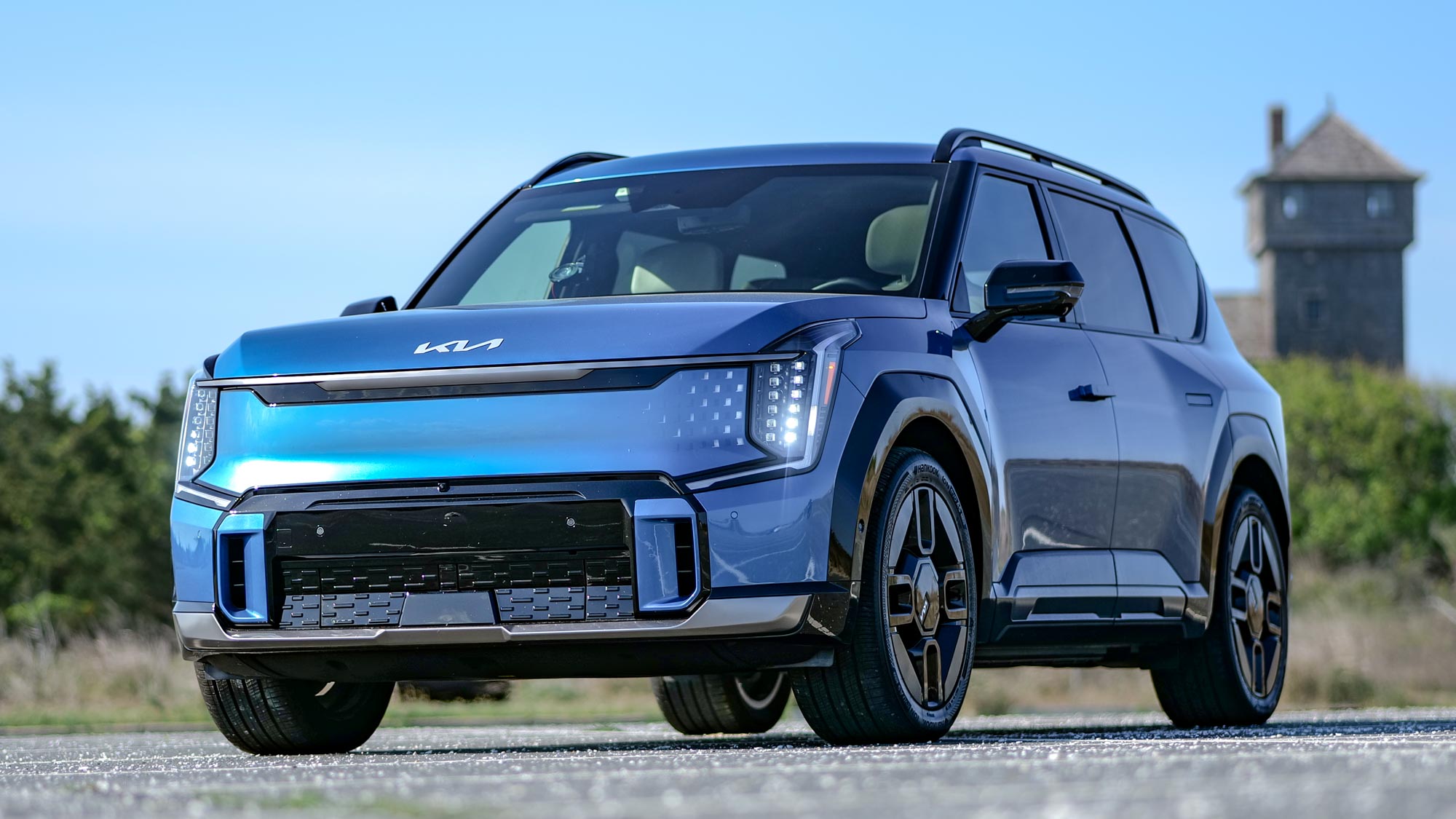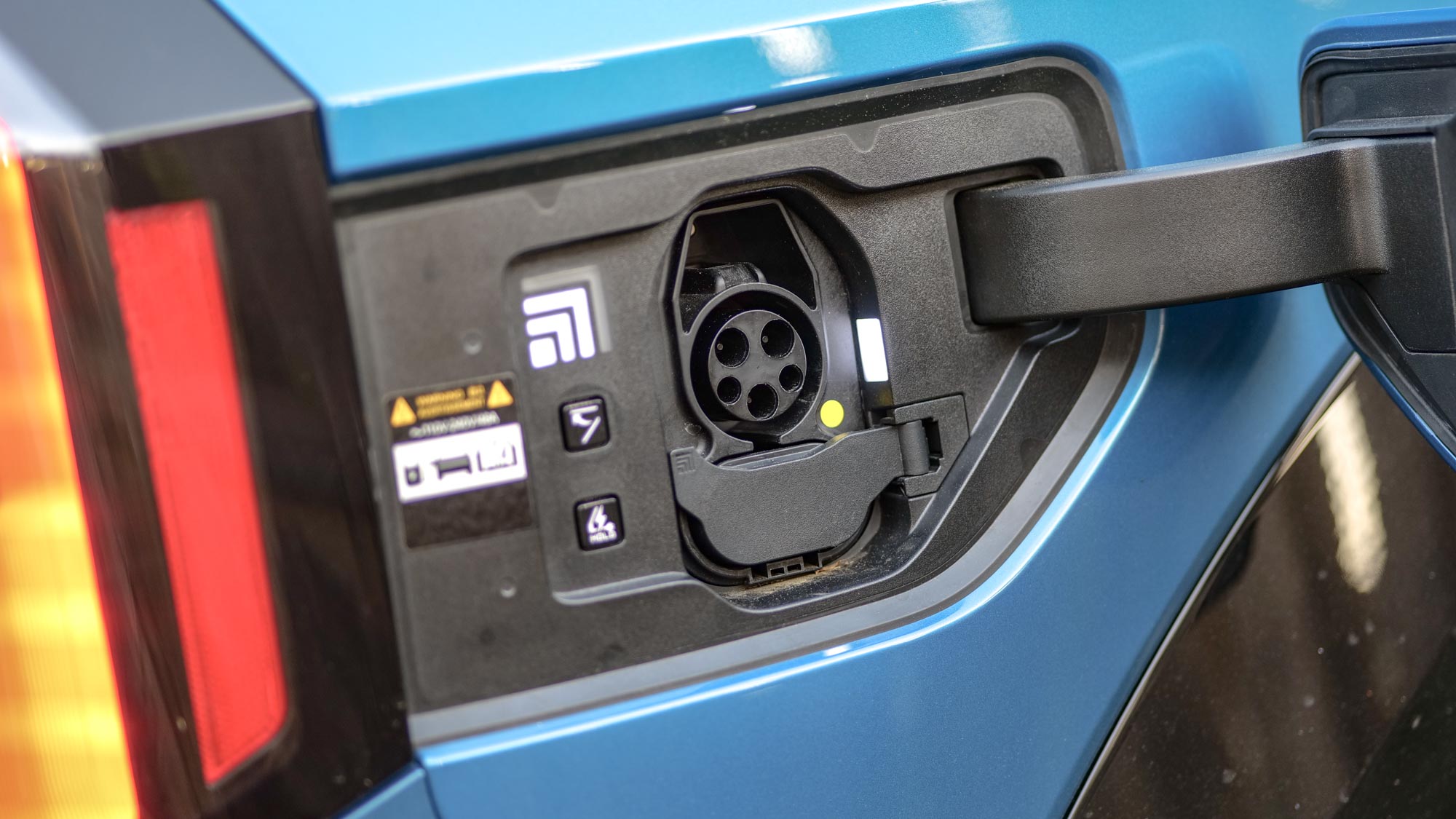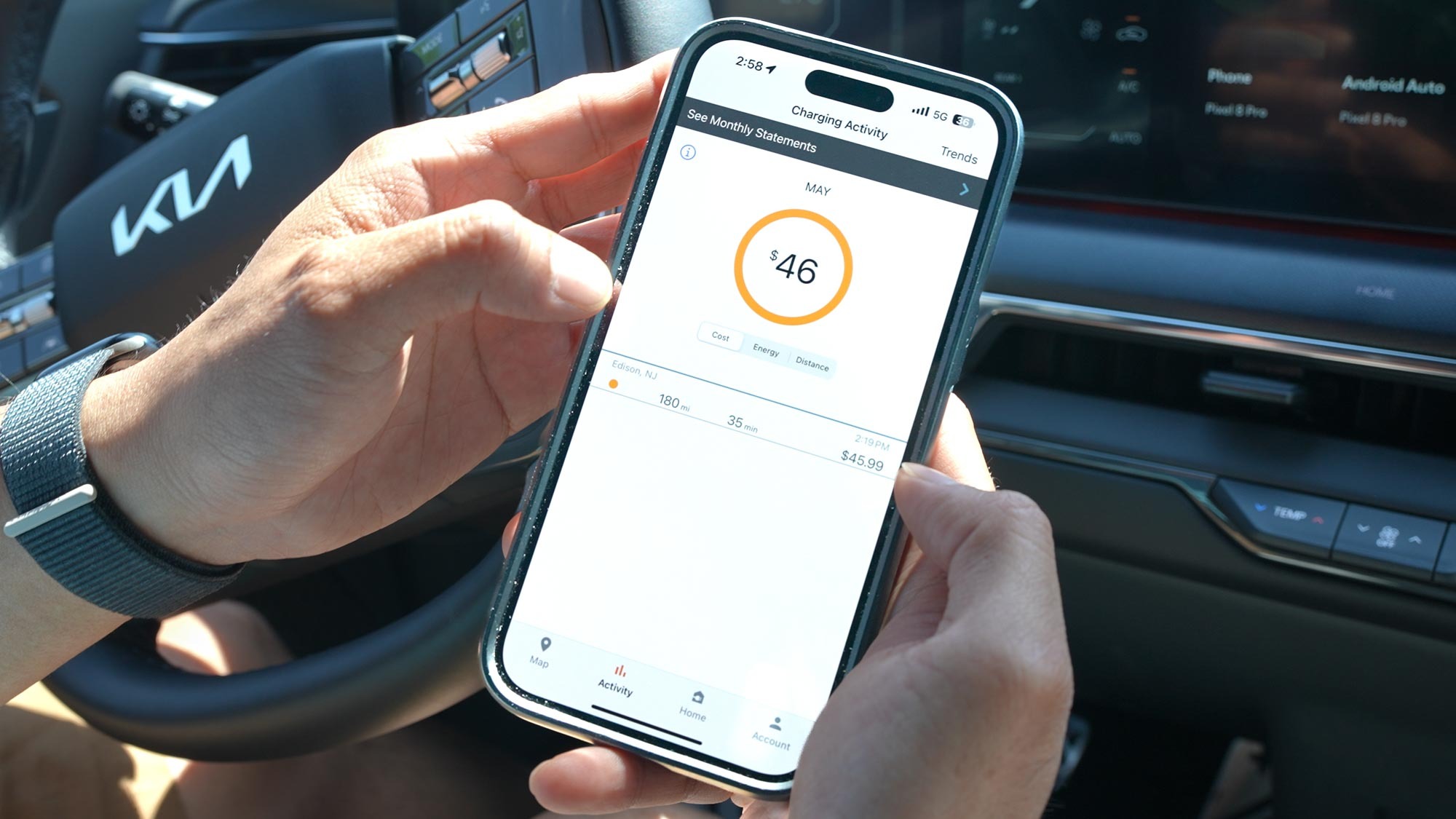I charged a Kia EV9 for the first time and it was more expensive than filling up my gas-powered car
The savings are actually elsewhere

One of the biggest draws for owning an electric vehicle is the promise of their long term savings over traditional ICE (internal combustion engine) vehicles. Everyone knows that gasoline is expensive, which can get to obnoxious levels around holidays and peak vacation times throughout the year. However, I was in for a surprise when I decided to charge an EV for the first time at a charging station with my own money.
It turns out that it costs more to charge the EV than filling my gas-powered car. After test driving the Kia EV9 GT-Line AWD for a week, I managed to get the charge level low enough to warrant a visit to a charging station. Usually, I would charge at home, but I was nowhere close — so a pitstop was necessary.
Using the built-in navigation of the Kia EV9 to direct me to the nearest EV charging station, I proceeded to download the ChargePoint app to pay for the charging. Everything went smoothly until I unplugged the charger from the vehicle, only to see how much I ended up paying for the charge in the app.
The total ended up coming to $46, which is more than the cost of filling up the 13.2 gallon gas tank in my Corolla. Something just doesn’t add up, right? How could charging an electric vehicle cost more than filling up a car with gasoline? I thought charging an EV would be much cheaper than filling up with gas.
While this is certainly an unexpected surprise for me, this is a scenario that new car buyers need to be educated about so they won’t be disappointed when they finally do this themselves. Here’s why.
UPDATE: I want to take explain why this is a shock using the Kia Telluride as an example. Knowing that the $46 cost of charging gave back 180 miles of range to the EV9, the better comparison would be to know how much it would cost for the Kia Telluride AWD to presumably get the same range. It has a an 18.8 gallon gas tank, and when you factor in its abysmal combined 20 mpg fuel economy, it would take filling up 9 gallons of gas to reach the same 180 miles. With regular unleaded gas at my closest gas station at $3.31/gallon, it would cost under $30 for the Telluride to presumably get 180 miles.
Know the rates, just like gas prices

Everyone who drives knows what’s considered good and outrageous prices for gasoline, so that same idea also applies to EV charging. Knowing the electricity rates is key because it’s the single reason for a bill that could end up costing more than buying gas.
Get instant access to breaking news, the hottest reviews, great deals and helpful tips.
While gas and electric prices can vary from place to place, the difference between them is that the cost of charging an EV depends on what time of the day you do it. That’s because there are peak and off-peak hours, which was unfortunate for me. Peak rate hit during the mid-afternoon when the rate was at its highest — $0.64/kWh, right when I stopped to charge up. Since the charging added back 66kWh to the EV9’s battery, the total with tax came out to $46.
The rate is critical for EV drivers to know because for the same amount of charging during off-peak hours, 12:00 a.m. to 7:59 a.m, the rate becomes significantly lower at $0.50/kWh. Instead of a shocking $46 cost, it would come to a little over $35 — which looks much better on paper (and in my wallet).
The real savings is home charging

I mention this because you have to again remember that the cost of electricity at home is much cheaper. For example, my electric company charges about $0.10/kWh during the summer. The 2024 Kia EV9 GT-Line AWD has a 99.8 kWh battery, so charging that battery to full would still come out to less than $10. Now that figure looks much better than the $46 bill at the EV charging station.
However, as I’ve learned from my experience, you should invest in a Level 2 charger. Even though Level 1 chargers are more convenient and work on existing 120V outlets, they take an awful long time. I learned this first hand when I tried charging the Hyundai Ioniq 6 at home, neglecting to realize that there’s an option to adjust the amperage. With a Level 2 charger, most EVs could charge overnight — which again yields bigger savings in the long run because of off-peak hours.
So, while my expectation was different, I hope my experience gives you a better idea of what to expect if you haven’t charged an EV at a station yet. Revisiting one is inevitable, but I know I’ll make a point of being more conscious about charging levels so I can minimize my visits.
More from Tom's Guide
- Sorry, EVs — I test drove my first PHEV and it’s the perfect blend of electric and gas power
- Thinking of buying an EV? Here’s the one question you need to answer first
- The 8 cheapest electric cars you can buy right now

John’s a senior editor covering phones for Tom’s Guide. He’s no stranger in this area having covered mobile phones and gadgets since 2008 when he started his career. On top of his editor duties, he’s a seasoned videographer being in front and behind the camera producing YouTube videos. Previously, he held editor roles with PhoneArena, Android Authority, Digital Trends, and SPY. Outside of tech, he enjoys producing mini documentaries and fun social clips for small businesses, enjoying the beach life at the Jersey Shore, and recently becoming a first time homeowner.
 Club Benefits
Club Benefits






